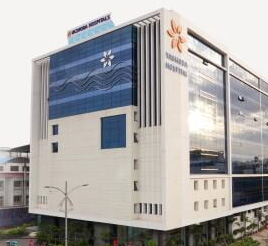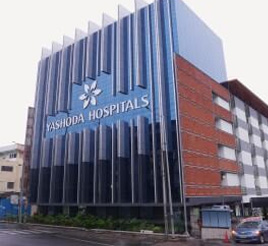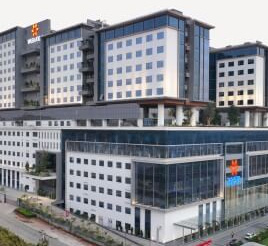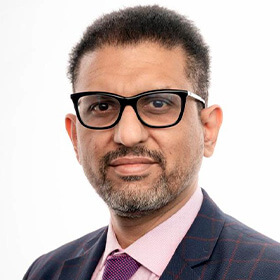Why Choose Yashoda Hospitals for PTCA?
Yashoda Hospitals offers advanced cardiac treatment with personalized care and cutting-edge surgical techniques.
Leading Surgical Center
Yashoda Hospitals is recognized as the Best Hospital for PTCA Procedure in Hyderabad, offering exceptional surgical care services.
Cutting-edge Facilities
Equipped with state-of-the-art technology and advanced medical equipment, our facility provides the perfect setting for precise and accurate angioplasty services
Expert Surgical Team
Our highly experienced surgical team specializes in performing advanced angioplasty procedures, ensuring optimal outcomes for all patients.
Dedicated Surgical Care
Our dedicated surgical care team is committed to guiding you through every step of your journey.
PTCA Procedure Overview
Steps of PTCA Surgery
Patient Preparation: Before attaching monitoring devices to track vital signs throughout the procedure, the area where the catheter will be inserted is cleaned and numbed.
Catheter Insertion: A thin, flexible tube (catheter) with a deflated balloon at its tip is inserted into a large artery, often in the leg or the radial artery in the forearm.
Guidance to the Blocked Artery: The catheter is carefully guided through the arteries using X-ray guidance to reach the blocked or narrowed portion of the coronary artery.
Balloon Inflation: This inflation compresses the artery walls, widening the narrowed passage and restoring normal blood flow.
Coronary Artery Stenting (if needed): In some cases, a stent (a small wire mesh) may be placed at the e blockage area to provide structural support and prevent re-narrowing of the artery.
| Procedure Name | PTCA |
|---|---|
| Type of Surgery | Major |
| Type of Anesthesia | Local Anesthesia |
| Procedure Duration | Depends on number of stents placed |
| Recovery Duration | 3 Days |
Benefits of undergoing PTCA at Yashoda Hospitals
Effective Repair: Our comprehensive evaluation and personalized treatment plans ensure effective treatment and most optimal cardiac outcomes
Experienced Surgical Team: With years of experience, our skilled surgeons perform angioplasty procedures with precision and expertise.
Efficient Care: We strive to provide timely diagnosis and prompt initiation of treatment strategies, ensuring efficient care and optimal outcomes.
Out Expert Team for PTCA
Insurance Assistance for PTCA
Navigating insurance coverage for PTCA can be complex, but our team is here to help make the process seamless.
- Coverage Clarification: We’ll assist you in understanding your insurance coverage for PTCA including any limitations or out-of-pocket expenses.
- TPA Assistance: Our team works with Third Party Administrators (TPAs) to streamline the insurance process and ensure a hassle-free experience for you.
- Transparent Communication: Expect clear and transparent communication regarding insurance-related matters, helping you make informed decisions about your healthcare expenses.


Free Second Opinion for PTCA
If you’ve been advised of PTCA, get a free second opinion from our experts.
Our experienced surgical team will review your case, providing valuable recommendations to help you make informed decisions about your angioplasty procedure.

PTCA Hospitals Near You
4 Hospitals, 4000 Beds
-

Somajiguda -

Malakpet -

Secunderabad -

Hitec City
FAQ's
Is angioplasty a major surgery?
Angioplasty is a minimally invasive procedure rather than a major surgery. Unlike traditional open-heart surgery, angioplasty does not involve a large incision or the use of a heart-lung bypass machine.
What are the indications for PTCA?
PTCA can alleviate symptoms such as chest pain and shortness of breath, allowing individuals to resume normal activities. This procedure might be recommended if medication or lifestyle changes have not sufficiently improved the condition, or if symptoms worsen.
Is angioplasty safe?
Angioplasty, particularly with advances in technology and techniques, is associated with low complication rates. The vast majority of patients undergo the procedure without experiencing significant issues.
When is an angioplasty done?
Angioplasty is done to treat narrowed or blocked coronary arteries, improving blood flow to the heart and alleviating symptoms such as chest pain. It is a minimally invasive procedure that helps restore normal blood circulation
Is angioplasty painful?
Patients might feel some pressure or mild discomfort at the catheter insertion site, but this is usually minimal.After the procedure, some individuals may experience mild soreness or discomfort at the insertion site.
How long does an angioplasty take?
The duration of an angioplasty procedure can vary based on several factors, including the complexity of the blockages, the number of arteries involved, and the specific details of the patient’s condition.
Is PTCA the same as stent?
PTCA refers to the angioplasty part of the procedure where the balloon catheter is used to open the narrowed artery. Stent placement is placed in the process to maintain the widened artery and prevent it from closing up again.
Is a PTCA a cardiac catheterization?
Yes, a PTCA is a type of cardiac catheterization. Procedure in which a thin, flexible tube called a catheter is inserted into a blood vessel, typically in the groin or wrist, and threaded through the blood vessels to the heart.
Which artery is used for PTCA?
Accessing the femoral artery in the groin is a traditional approach for PTCA. The artery chosen for PTCA depends on factors like the patient’s anatomy, the procedure’s complexity, and the preferences and expertise of the cardiologist.
2024 © All rights reserved by Yashoda Hospitals





































